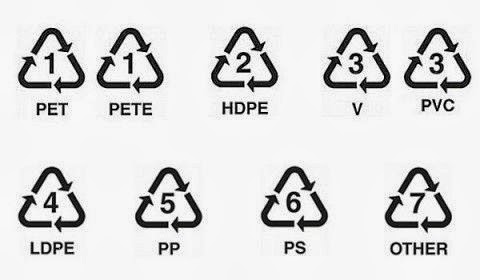The Ig Nobel Prizes (Los Anti-Nobel)
Los Premios Ig Nobel, son premios a la ciencia o la investigación de los improbable, es decir, con sustento científico se otorga el premio a algo demostrable que es absurdo y divertido a la vez, y que al final nos haga pensar. La ceremonia se lleva a cabo en Harvard y las lecturas en el MIT. Por tanto, es más serio de lo que parece.
Aquí les dejo la web oficial: Improbable Research
Ig Nobel Prize (Wikipedia)
List of Ig Nobel Prize winners (Wikipedia)
Y aquí tienen los ganadores del Ig Nobel en Economía:
1991 - Michael Milken, titan of Wall Street and father of the junk bond, to whom the world is indebted.
1992 - The investors of Lloyd's of London, heirs to 300 years of dull prudent management, for their bold attempt to ensure disaster by refusing to pay for their company's losses.
1993 - Presented to Ravi Batra of Southern Methodist University, shrewd economist and best-selling author of The Great Depression of 1990 (ISBN 978-0-440-20168-7) and Surviving the Great Depression of 1990, (ISBN 978-0-671-66324-7) for selling enough copies of his books to single-handedly prevent worldwide economic collapse.
1994 - Presented to Juan Pablo Dávila of Chile, tireless trader of financial futures and former employee of the state-owned company Codelco, for instructing his computer to "buy" when he meant "sell". He subsequently attempted to recoup his losses by making increasingly unprofitable trades that ultimately lost 0.5 percent of Chile's gross national product. Davila's relentless achievement inspired his countrymen to coin a new verb, "davilar", meaning "to botch things up royally".
1995 - Presented jointly to Nick Leeson and his superiors at Barings Bank and to Robert Citron of Orange County, California for using the calculus of derivatives to demonstrate that every financial institution has its limits.
1996 - Presented to Dr. Robert J. Genco of the University at Buffalo for his discovery that "financial strain is a risk indicator for destructive periodontal disease."
1997 - Presented to Akihiro Yokoi of Wiz Company in Chiba, Japan, and Aki Maita of Bandai Company in Tokyo, for diverting millions of man-hours of work into the husbandry of virtual pets.
1998 - Presented to Richard Seed of Chicago for his efforts to stoke up the world economy by cloning himself and other human beings.
1999 - No hubo premiado.
2000 - Presented to The Reverend Sun Myung Moon, for bringing efficiency and steady growth to the mass marriage industry, with, according to his reports, a 36-couple wedding in 1960, a 430-couple wedding in 1968, an 1800-couple wedding in 1975, a 6000-couple wedding in 1982, a 30,000-couple wedding in 1992, a 360,000-couple wedding in 1995, and a 36,000,000-couple wedding in 1997.
2001 - Presented to Joel Slemrod, of the University of Michigan Business School, and Wojciech Kopczuk, of the University of British Columbia, for their conclusion that people find a way to postpone their deaths if that would qualify them for a lower rate on the inheritance tax.
2002 - Presented to the executives, corporate directors, and auditors of Enron, Lernaut & Hauspie (Belgium), Adelphia, Bank of Commerce and Credit International (Pakistan), Cendant, CMS Energy, Duke Energy, Dynegy, Gazprom (Russia), Global Crossing, HIH Insurance (Australia), Informix, Kmart, Maxwell Communications (UK), McKessonHBOC, Merrill Lynch, Merck, Peregrine Systems, Qwest Communications, Reliant Resources, Rent-Way, Rite Aid, Sunbeam, Tyco, Waste Management, WorldCom, Xerox, and Arthur Andersen, for adapting the mathematical concept of imaginary numbers for use in the business world. (All companies except for Arthur Andersen were forced to restate their financial reports due to false or incorrect accounting. Andersen was the accounting firm most identified with the scandals, having been indicted on criminal charges stemming from its actions as auditor of Enron. All companies are U.S.-based unless otherwise noted).
2003 - Presented to Karl Schwärzler and the nation of Liechtenstein, for making it possible to rent the entire country for corporate conventions, weddings, bar mitzvahs, and other gatherings.
2004 - Presented to the Vatican, for outsourcing prayers to India.
2005 - Presented to Gauri Nanda of the Massachusetts Institute of Technology, for inventing Clocky, an alarm clock that runs away and hides, repeatedly, thus ensuring that people get out of bed, and thus theoretically adding many productive hours to the workday.
2006 - No hubo premiado.
2007 - Kuo Cheng Hsieh, for patenting a device to catch bank robbers by ensnaring them in a net.
2008 - Geoffrey Miller, Joshua Tyber, and Brent Jordan, for discovering that exotic dancers earn more when at peak fertility.
2009 - The directors, executives, and auditors of four Icelandic banks—Kaupthing Bank, Landsbanki, Glitnir Bank, and Central Bank of Iceland—for demonstrating that tiny banks can be rapidly transformed into huge banks, and vice versa (and for demonstrating that similar things can be done to an entire national economy).
2010 - The executives and directors of Goldman Sachs, AIG, Lehman Brothers, Bear Stearns, Merrill Lynch, and Magnetar for creating and promoting new ways to invest money—ways that maximize financial gain and minimize financial risk for the world economy, or for a portion thereof.
2011 - No hubo premiado.
Recomiendo echarle una mirada a las otras categorías premiadas si les interesa echarse una risas.


Comentarios